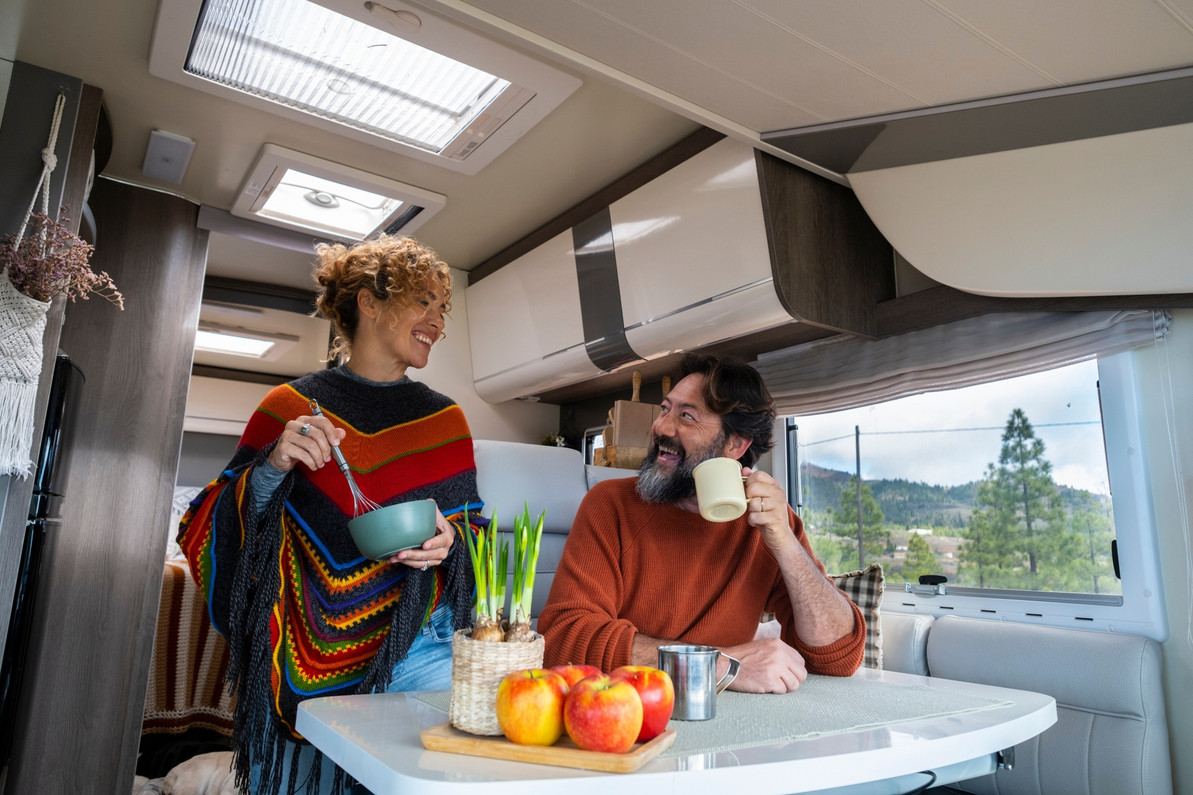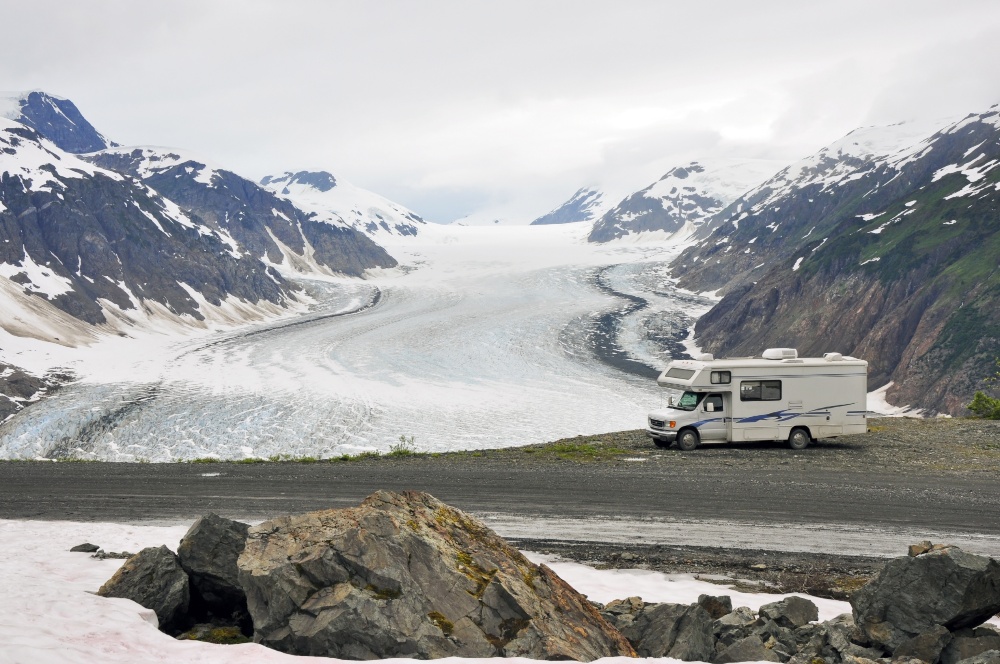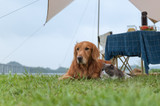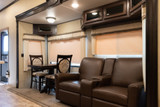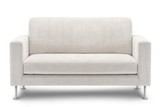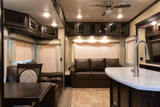Breathe Easy in Your RV
RVs allow you to easily escape the hustle and bustle of your everyday life and explore the great outdoors. If your RV's air quality is making it difficult to enjoy the fresh air of nature when you are traveling, read on for some tips to freshen up your rig.
Dust & sanitize regularly.
Dust can build up quickly, and even if seeing it around your camper doesn’t particularly bother you, breathing it in will. Avoid this by dusting every few days with a dry cloth or duster pad. In addition, sanitizing commonly used surfaces and spaces will prevent bacteria and viruses from lingering in your air space. Luckily, most RVs and campers really aren’t that big, so a quick dust and wipe down should take hardly any time at all if done regularly. Alternating daily cleaning tasks so that you spend a maximum of 15 minutes cleaning on any given day is a good strategy.
Avoid using harsh chemical cleaning products.
Harsh chemical cleaning products may seem like the best option for killing germs and bacteria, but when you are in a small enclosed space, such as an RV, these products may do more harm than good when considering the overall air quality of your indoor space. Household cleaning products often contain VOCs, or volatile organic compounds, which are chemicals that easily evaporate at room temperature and can be potentially harmful. VOCs are found in many commonly used products beyond chemical cleaners, such as fuel, paints, pesticides, personal care products, and aerosol sprays, to name a few.
While VOCs cannot be avoided entirely, you can consciously limit the use of VOC-containing products when possible. In cases where VOC-containing products are unavoidable, ventilation is one of the best ways to keep VOC levels in the air down.
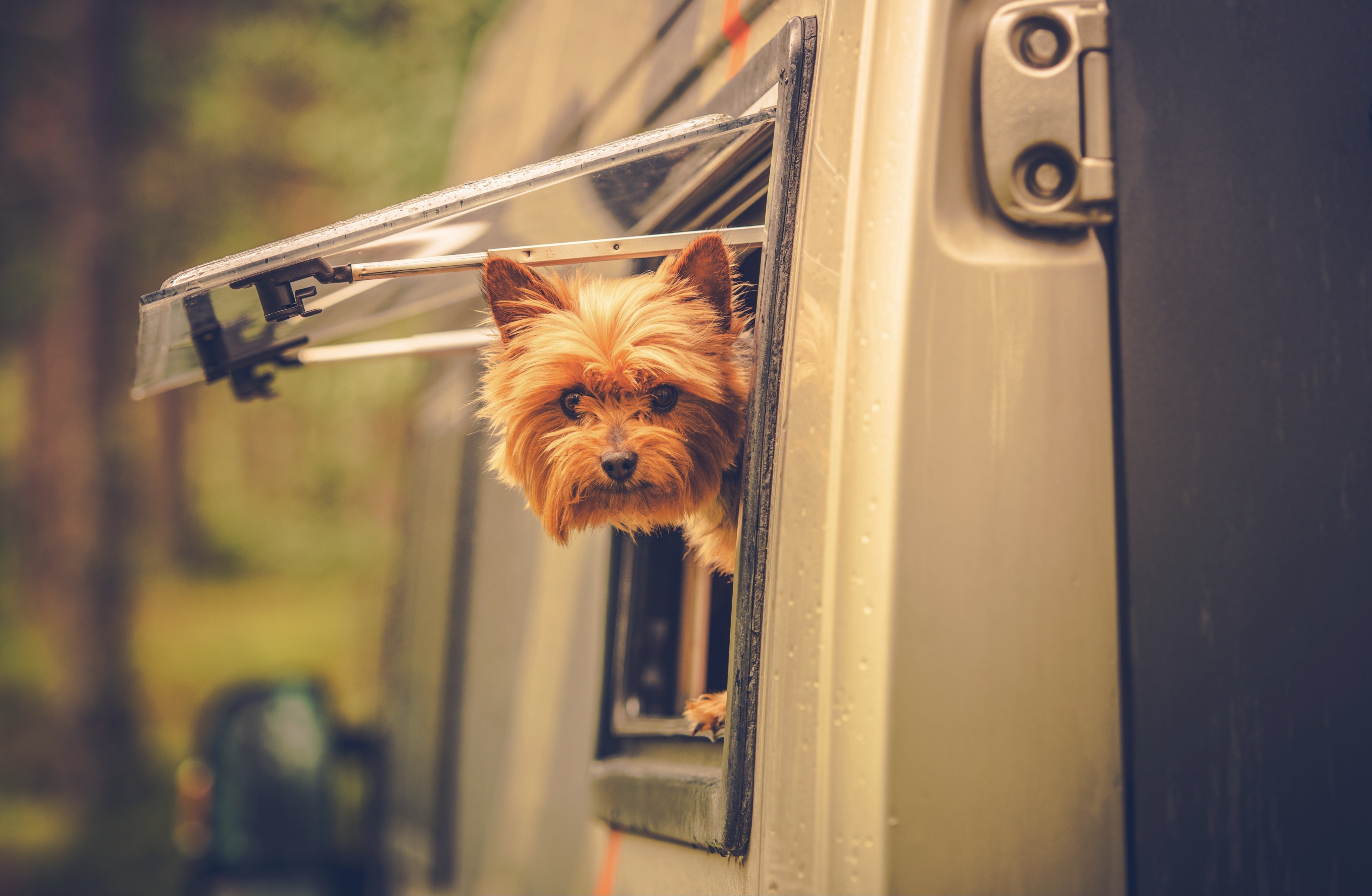
Groom pets regularly if they are traveling with you in your RV.
Traveling with pets in your RV is great, but they certainly increase the amount of dirt and dander inside your rig. If you are traveling around or camping in a single spot, plan ahead to get your pet groomed. Whether you reserve an appointment with a local groomer or bring the supplies to clean Fido yourself, having a plan for keeping your pets clean and healthy will pay off regarding the air quality in your RV.
space
Eliminate stale air by increasing airflow.
Stale air will make your space feel stuffy, can have an unpleasant odor, and may even be potentially harmful. But what exactly is stale air, and how can it be avoided?
When air is trapped in an enclosed space without proper circulation, moisture, pollutants, and carbon dioxide can accumulate, which results in stale air. Stale air typically has a musty smell and often is noticeably uncomfortable to breathe in.
In smaller enclosed spaces, such as your RV, travel trailer, or fifth-wheel, the air can quickly become stale and is sometimes difficult to manage. The best way to get rid of stale air, and avoid it altogether in the first place, is to ensure proper circulation and ventilation within your rig.
Airflow can be increased by opening windows whenever possible, running fans or ceiling vents, and using the air conditioner.
Minimize moisture and condensation buildup
Moisture and condensation buildup can cause significant problems for RV owners. RVs lack the same level of insulation as your sticks’n’bricks home since weight capacity and space are limited. The lack of insulation can lead to condensation appearing more quickly. Condensation results from warm, moist air coming into contact with a cold surface. There are 2 general scenarios where condensation will be the worst.
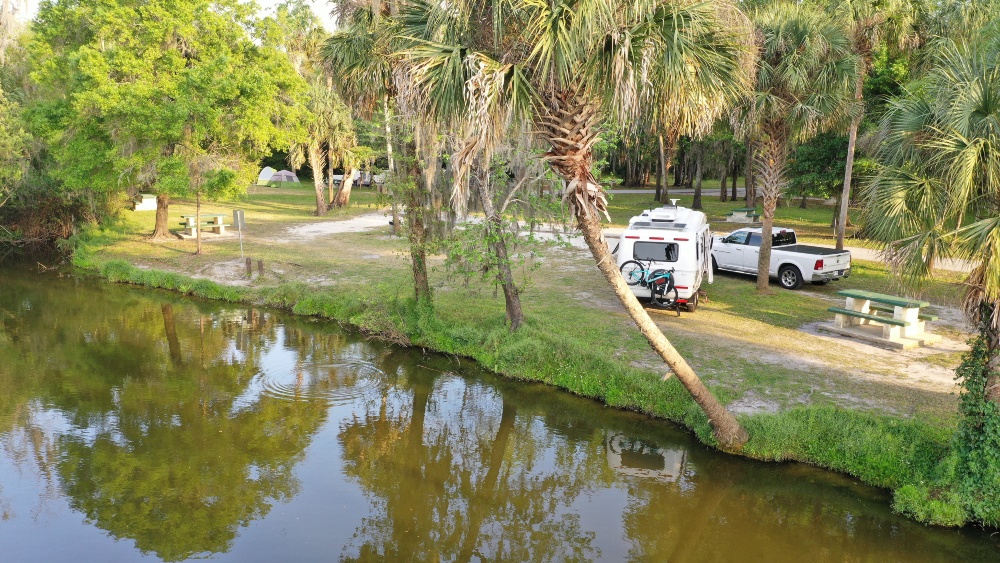
Hot & Humid Climates
When warm, moist air from outside comes in contact with the cold windows and walls of your air-conditioned camper, condensation can occur.
space space
space
Cold Climates
Condensation can also occur when the warm, moist air produced inside your rig from the furnace and body heat comes in contact with the cold exterior air.
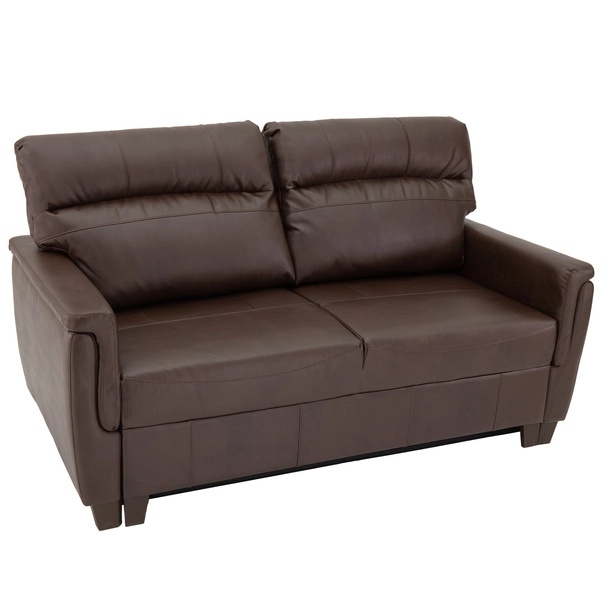
Spacesaver
Update old cloth furniture.
Certain fabric types are more susceptible to trapping smells and dirt than others. Even if your old cloth furniture has been well cared for, it can still pick up an odor after years of use. If air quality is a big issue in your rig, examine your furniture and decide if replacing it with a more durable and stain-resistant fabric would be a reasonable solution.
Keep an eye on (relative) humidity levels.
If you have ever spent time in the desert or near a swamp on a hot day, you are familiar with how different humidity levels feel on your skin and lungs. Sweat does not evaporate much in high humidity, so our bodies cannot cool down, leaving us feeling hot and sticky. In very dry climates, sweat evaporates quickly, which will help to cool you down momentarily but also means you will be losing water at a faster rate.
While we can sense changes in humidity based on our physiological responses to the environment, knowing the exact levels within your rig can help to stay ahead of the curve and effectively manage the internal humidity levels so that you rarely notice any uncomfortable shifts and protect your RV from moisture damage. A hygrometer is a tool used to measure the amount of water vapor in the air or confined spaces. Typically, a hygrometer will rely on an additional measurement, such as temperature, to provide an accurate relative humidity reading.
Relative humidity (RH) considers the percentage of moisture-holding capacity possible in the air at a given temperature and pressure. RH tells you how much water vapor is in the air compared to the maximum amount of water vapor the air can hold before reaching the point of condensation. Ideal relative humidity levels range from 30-50%.
Maintain A/C and engine air filters.
Similar to your car, RVs have cabin A/C filters and engine air filters that require regular maintenance depending on use. The cabin A/C air filter is responsible for filtering the air that is moving through your air conditioner and into your space. In contrast, the engine air filter is responsible for preventing dust, dirt, and other environmental contaminants from getting into the engine. Filters should be inspected regularly and cleaned or replaced as appropriate.
Invest in an air purifier.
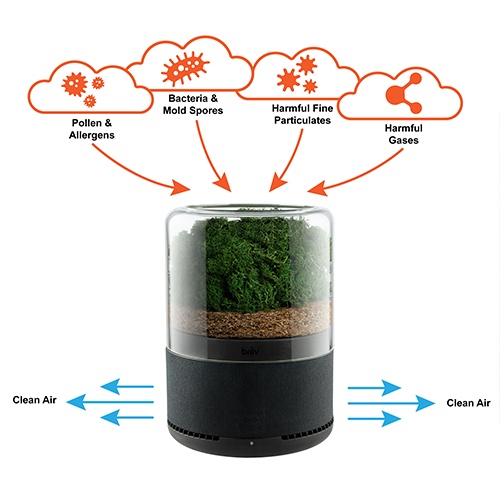
Air purifiers may seem like an obvious solution if you are looking to improve your indoor air quality. However, they are expensive, and many people may be hesitant to make the investment. Air purifiers actively filter allergens, bacteria, dust, and mold from the air, significantly improving air quality.
For some people, the tips listed thus far will be sufficient to maintain comfortable air quality within their camper. However, those with bad allergies, pets, children, or immune sensitivities may find that they are still experiencing symptoms of living with poor air quality, such as irritation/dryness of the eyes, nose, and throat, headache, coughing & sneezing, and congestion. If this is the case, it may be time to consider an indoor air purifier.
There are plenty of options for air purifiers nowadays, which can make it tough to choose one to buy. RecPro carries the Briiv Air Purifier, which was inspired by nature and guided by science. The plants around us filter the air we breathe every day, so Briiv decided to use plants to power indoor air filtration but tweaked the process a bit to increase efficiency. Check out the video below to see the Briiv air purifier in action. Moss, coconut, and silk matrix filters are used for a 3-step purification process.
What do you think of the Briiv air filter? Would you try it in your space? Let us know in the comments down below!
Recent Posts
-
How to Keep Your Pets Safe While Camping
RVing and camping are a great getaway from the hustle and bustle of work and the city and the day-to …Jul 2nd 2024 -
Why Replace Your RV Furniture?
You may wonder when is the best time to replace your RV furniture. There is no one right answer to t …May 20th 2024 -
Can You Put Regular Furniture in an RV?
Many new and old RV owners ask themselves this question when they feel the need to update th …Apr 25th 2024 -
4 Tips for Securing RV Furniture While Traveling | RecPro
How To Secure RV Furniture There are few things that beat going out on an adventure with an RV …Apr 25th 2024 -
How To Keep RV Furniture From Peeling
Peeling RV Furniture | Why it Peels and How to Stop it Your RV furniture is a point of pride on yo …Apr 25th 2024 -
Turning up the Heat With an RV Fireplace
There’s an unlimited number of cool and exciting features you could add to your recreational vehicle …Apr 25th 2024

